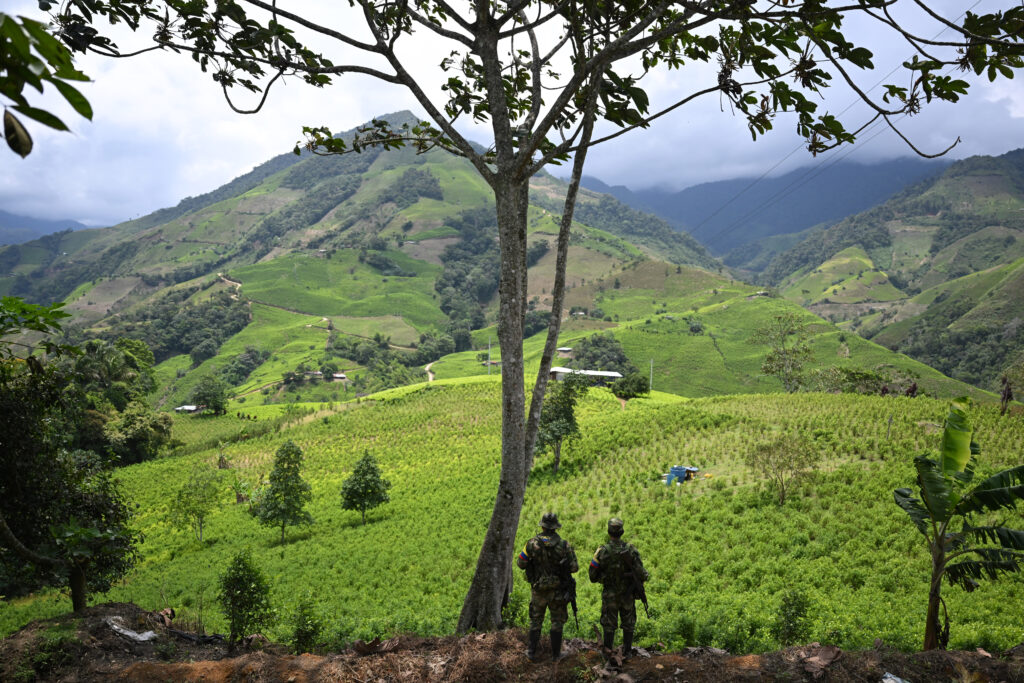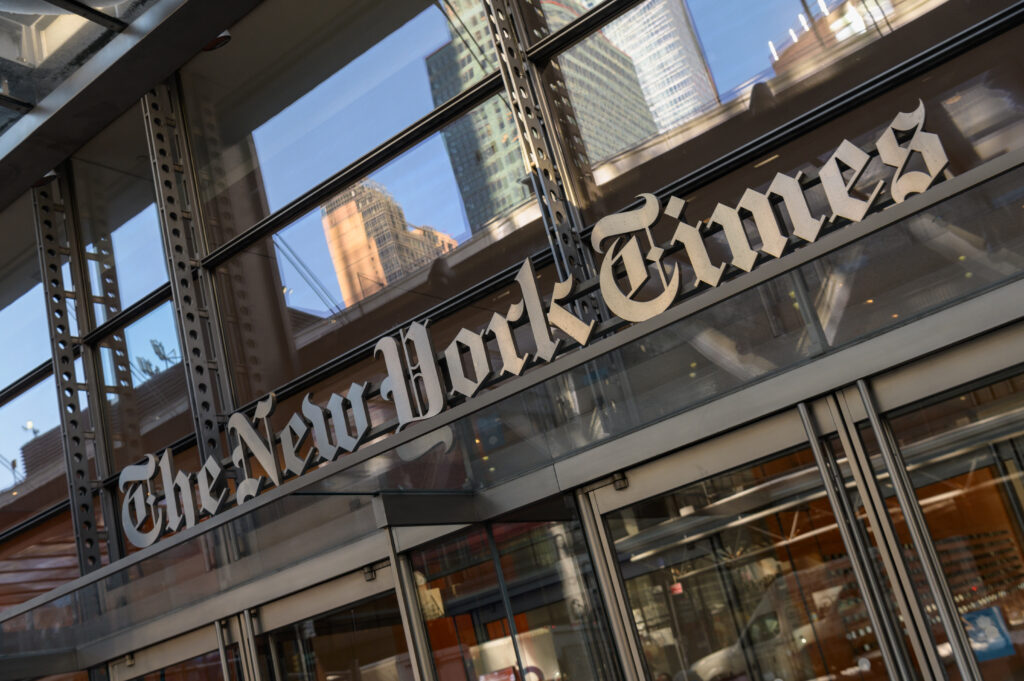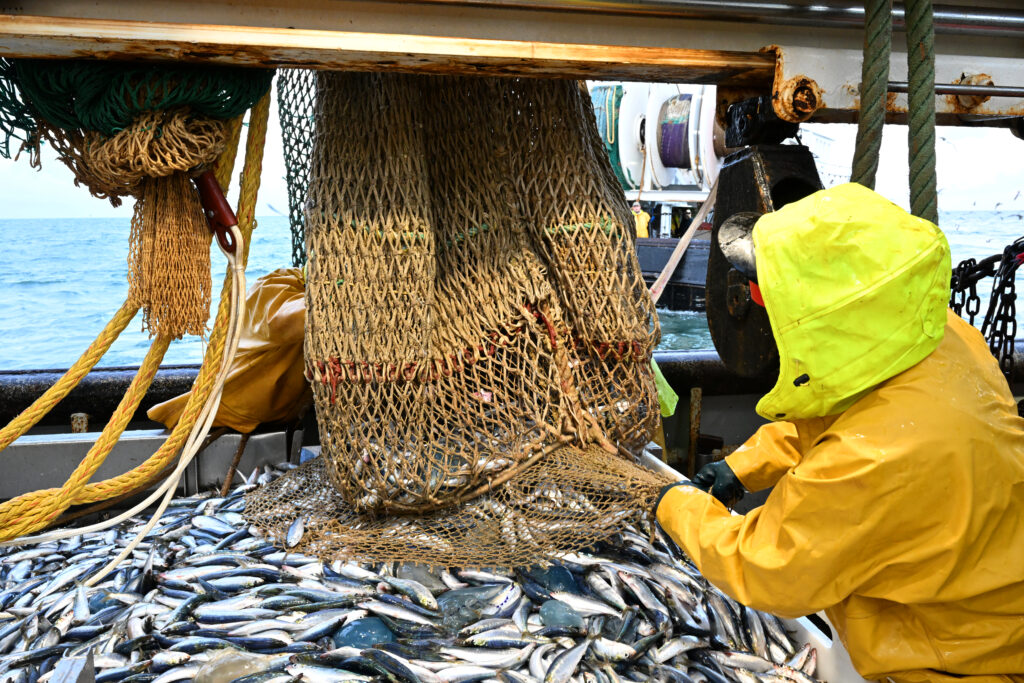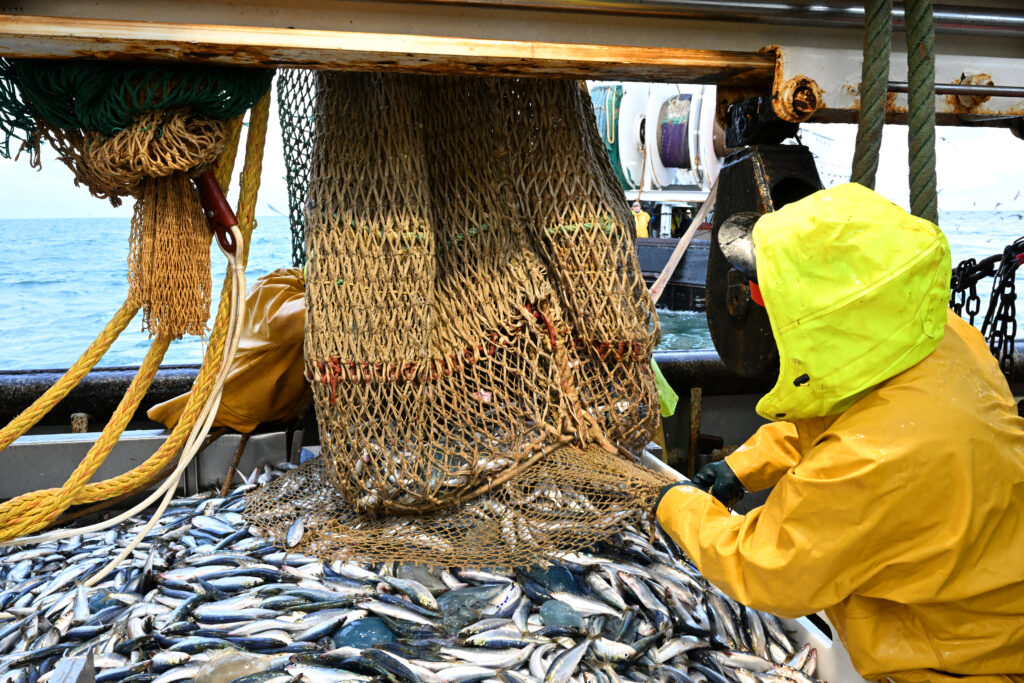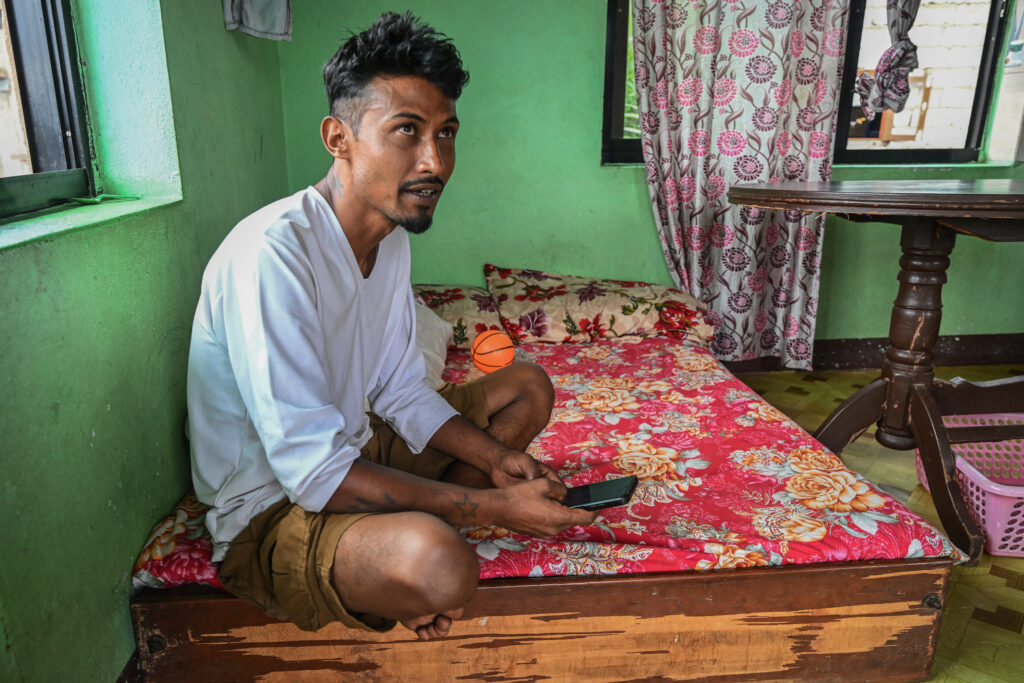US decertifies Colombia as ally in drugs fight
The United States said Monday it has decertified Colombia as an ally in the fight against drugs, a decision that could cost Bogota hundreds of millions of dollars in US military support.After decades of close alliance in the so-called war on drugs, US President Donald Trump denounced his Colombian counterpart Gustavo Petro for not only failing to curb cocaine production, but overseeing its surge to “all-time records”, according to a signed determination the White House sent to Congress on Monday.”Under President Petro’s leadership, coca cultivation and cocaine production have reached record highs while Colombia’s government failed to meet even its own vastly reduced coca eradication goals, undermining years of mutually beneficial cooperation between our two countries against narco-terrorists,” Trump wrote.The Trump administration has repeatedly pressured Petro, the first leftist elected to lead Colombia, and voiced hope for a shift after elections next year.”Colombia has been a great partner historically. Unfortunately, they have a president now that, in addition to being erratic, has not been a very good partner when it comes to taking on the drug cartels,” Secretary of State Marco Rubio, a sworn enemy of leftist leaders in Latin America, said on a visit to Israel.”I think we have willing partners, if it was up to the military, the police. We’ve been working with them for decades,” Rubio told reporters, voicing hope that Colombia could be recertified in the future. Washington has conducted assessments annually since 1986 on the anti-narcotics efforts of some 20 drug-producing and distributing countries. In the case of Colombia, the world’s largest cocaine producer, US assistance for anti-narcotics efforts reached some $380 million a year, a figure which is now in jeopardy.In a meeting with his cabinet, Petro confirmed the change, saying “the United States is decertifying us after dozens of deaths of police officers and soldiers” in the fight against drug cartels and leftist guerrillas funded by drug trafficking.Since coming to power in 2022, Petro has championed a paradigm shift in the US-led war on drugs, which he considers a failure, to focus on the social problems that fuel drug trafficking.Since 2022, cultivation of coca, the main ingredient in cocaine, has increased by about 70 percent, according to Colombian government and United Nations estimates.To regain the designation, Trump called on Colombia’s government to take “more aggressive action to eradicate coca and reduce cocaine production and trafficking”.He also urged it to “hold those producing, trafficking and benefiting from the production of cocaine responsible, including through improved cooperation with the United States to bring the leaders of Colombian criminal organizations to justice”.- ‘Failure’ by leadership -The decertification comes amid a major drive by Trump against drug cartels, in which US forces have blown up two alleged Venezuelan drug boats, killing 14 people.Trump’s statement praised Colombian authorities, laying blame squarely with Petro.”The failure of Colombia to meet its drug control obligations over the past year rests solely with its political leadership,” Trump wrote, also touching on Venezuela and Bolivia’s efforts to curb cocaine trafficking.The downgrade is a major blow for Colombia, coming as the military and police reel from a string of deadly attacks by the guerrillas.Washington’s disavowal of Petro had been expected since January, when he became embroiled in a blazing row with Trump over migrant deportations.In Colombia, the military and police are reeling from a string of deadly attacks by guerrilla groups. On August 21, 12 police officers were killed when breakaway members of the defunct FARC rebel group shot down a police helicopter during a coca eradication operation in the country’s northwest.On the same day, a truck bomb was detonated on a busy street near a military aviation school in the city of Cali, killing six people.
Israel sets Gaza ‘on fire’ as Rubio warns days left for deal
Israel unleashed a massive new bombing campaign on Gaza City on Tuesday after visiting US Secretary of State Marco Rubio backed the ally’s goal of eradicating Hamas and warned only days may be left for a diplomatic solution.Israeli Defence Minister Israel Katz said early Tuesday that Gaza City, the territory’s main urban hub, was “on fire”.”The IDF (Israeli military) is striking terrorist infrastructure with an iron fist, and IDF soldiers are fighting bravely to create the necessary conditions for the release of the hostages and the defeat of Hamas,” he said.”We will not relent and we will not back down until the mission is accomplished,” Katz said.It was however unclear whether the previously declared ground assault on Gaza City had been launched.Witnesses told AFP of relentless bombing on Gaza City, much of which is already in rubble after nearly two years of Israeli strikes since the October 7, 2023 attacks by Hamas.”We can hear their screams,” said 25-year-old resident Ahmed Ghazal.Rubio on Monday offered robust backing for the offensive as he met Israeli Prime Minister Benjamin Netanyahu, who has ordered the Israeli military to seize Gaza City.Pointing to the fresh operations, Rubio told reporters as he left Israel: “We think we have a very short window of time in which a deal can happen. We don’t have months anymore, and we probably have days and maybe a few weeks to go.”Rubio said a diplomatic solution in which Hamas demilitarises remained the US preference, although he added: “Sometimes when you’re dealing with a group of savages like Hamas, that’s not possible, but we hope it can happen.”Rubio, who met Monday in Jerusalem with families of hostages in Gaza, acknowledged that Hamas had leverage by holding them.”If there were no hostages and no civilians in the way, this war would have ended a year and a half ago,” he said at Tel Aviv’s Ben Gurion airport.A group representing hostages families said they were “terrified” for their loved ones after Netanyahu ordered the strikes.”He is doing everything to ensure there is no deal and not to bring them back,” they said in a statement.- US still hopes for Qatar role -Rubio was flying to Qatar, which he said he hoped would keep up its mediation, despite Israel carrying out air strikes a week ago in the Gulf country against Hamas leaders gathered to consider a US truce proposal.”We want them to know that if there’s any country in the world that could help end this through a negotiation, it’s Qatar,” Rubio said.President Donald Trump said that Netanyahu would not be hitting Qatar again, although both Rubio and Netanyahu declined to make similar assurances.European powers, but not the United States, have unsuccessfully urged Israel to halt the new Gaza campaign, warning of worsening the humanitarian crisis in the territory, where the United Nations determined last month a million people were facing famine — a finding rejected by Israel.Mahmud Bassal, a spokesman for the Gaza civil defence agency, told AFP that as of early Tuesday heavy bombing was ongoing in Gaza City, adding that the military also targeted the southern city of Khan Yunis.The agency said at least 17 people had been killed on Tuesday, noting that “the number of deaths and injuries continues to rise”.Media restrictions in Gaza and difficulties in accessing many areas mean AFP is unable to independently verify the details provided by the civil defence agency or the Israeli military.- Ahead of French statehood push -Rubio’s visit come a week before France will lead a UN summit in which a number of Western countries, angered by what they see as Israeli intransigence, plan to recognise a Palestinian state.Rubio called statehood recognition “largely symbolic”, while Netanyahu — whose government is fervently opposed to such a move — said his country may take unspecified “unilateral steps” in response.Far-right members of Netanyahu’s cabinet have called for annexing the occupied West Bank to preclude a state, triggering protests by the United Arab Emirates, which normalised ties with Israel five years ago. Netanyahu said Rubio’s visit was a “clear message” the United States stood with Israel, and called Trump “the greatest friend that Israel has ever had”.The October 7 attack by Hamas resulted in the deaths of 1,219 people, most of them civilians, according to an AFP tally of official figures.Israel’s retaliatory campaign in Gaza has killed more than 64,900 people, also mostly civilians, according to figures from the territory’s health ministry that the United Nations considers reliable.Of the 251 people taken hostage by Palestinian militants in October 2023, 47 remain in Gaza, including 25 the Israeli military says are dead.
Au Sénégal, inquiétudes pour la liberté d’expression sous le nouveau pouvoir
Journaliste condamné pour “offense” au Premier ministre, chroniqueurs emprisonnés, convocations d’opposants par la police multipliées : au Sénégal, des voix dénoncent la répression croissante des libertés par le gouvernement, qui à son arrivée accusait pourtant son prédécesseur des mêmes travers.Depuis plusieurs mois, les poursuites pour délits d’opinion s’accumulent dans ce pays réputé démocratique et plutôt stable dans une région agitée.L’un des derniers cas concerne le journaliste Doudou Coulibaly.Arrêté le 20 août, il a été condamné à trois mois de prison avec sursis pour “offense à un chef d’Etat étranger et à une personne exerçant les prérogatives du chef de l’Etat”, après une vidéo où il critiquait vertement le Premier ministre Ousmane Sonko à l’occasion de sa visite au président turc Recep Tayyip Erdogan.Il y a 16 mois, Bassirou Diomaye Faye, élu président dès le premier tour, et son mentor et désormais Premier ministre Ousmane Sonko (charismatique leader du parti souverainiste Pastef) étaient arrivés au pouvoir porteurs d’espoir pour une large partie de la société sénégalaise.Le duo avait promis une rupture avec les anciennes pratiques du régime de Macky Sall (2012-2024), qui avait violemment réprimé des manifestations contre lui. Plusieurs dizaines de personnes avaient été tuées et des centaines d’autres blessées entre 2021 et 2024.MM. Faye et Sonko avaient tous les deux été emprisonnés. Le nouveau gouvernement a promis la fin de ces “abus” et organisé en mai 2024 des assises de la justice aux recommandations qui n’ont toujours pas été appliquées. Il n’a cessé depuis de se raidir, selon de nombreux observateurs.Interrogé à deux reprises par l’AFP, le porte-parole du gouvernement n’a pas donné suite. Pour Hamidou Anne, un cadre de l’ex-parti au pouvoir, “il y a une volonté de Pastef de rétrécir l’espace des libertés publiques et démocratiques”, a-t-il dit à l’AFP. Parmi les récentes affaires, le journaliste Bachir Fofana, qui commente régulièrement l’actualité dans la presse locale, a été écroué puis jugé après avoir affirmé, avant de se rétracter, qu’un marché de l’Assemblée nationale pour des véhicules neufs à chacun des 165 députés a été attribué à un opérateur économique cité dans une affaire de corruption.Il a été condamné fin juillet pour diffusion de fausses nouvelles et a recouvré la liberté après un mois de détention.- “Raser les murs” -Au moins deux chroniqueurs sont actuellement en détention pour notamment “diffusion de fausses nouvelles”, dont Badara Gadiaga, accusé d'”atteinte à une personne exerçant les prérogatives de chef d’Etat” (Premier ministre).M. Gadiaga avait, lors d’un débat télévisé, repris et expliqué des propos d’un député du pouvoir sur l’accusation de viol ayant visé Ousmane Sonko alors opposant (et qui sera finalement condamné pour “corruption de la jeunesse”).Quant à l’opposant Moustapha Diakhaté, il a fait 45 jours de détention après avoir traité le chef de l’Etat de “gougnafier”.Interrogé par l’AFP, le député Guy Marius Sagna, membre de Pastef, assure qu'”il n’y a pas de “restriction des libertés”. “Le problème n’est pas pourquoi certains anciens responsables et soutiens insulteurs du parti de Macky Sall sont emprisonnés. Le problème est pourquoi il n’y en a pas plus au vu des crimes économiques, financiers, sociaux et environnementaux” sous l’ex-pouvoir”, a-t-il lancé. Pour Hamidou Anne, la liberté d’expression est mise à rude épreuve car “le Premier ministre a affirmé vouloir effacer les voix contraires de l’opposition et des chroniqueurs politiques”. Devant les députés le 7 juillet, alors que certains lui reprochaient de ressasser son passé d’opposant brimé, M. Sonko s’est montré peu enclin au débat contradictoire.”Dieu sait pourquoi je ne suis pas président. Si ça ne tenait qu’à moi, l’expression serait réduite au minimum. Seuls s’expriment ceux qui ne doivent pas le faire, ceux qui devraient se taire et raser les murs”, avait-il dit, en faisant allusion aux pouvoir précédent.Le directeur d’Amnesty International Sénégal, Seydi Gassama, reconnaît “beaucoup de problèmes en matière de liberté d’expression”. Il pointe “de vieilles lois très répressives et à réformer” liées à “des infractions comme l’offense au chef de l’Etat, l’injure publique et la diffamation”.De son côté, le président de la Ligue sénégalaise des droits humains, Alassane Seck, met en cause “les pouvoirs toujours exorbitants du procureur” à l’origine des nombreuses détentions préventives.”On s’attendait à des réformes du code pénal et du code de procédures pénales. Mais pour des raisons politiciennes, la situation est laissée en l’état”, relève-t-il.Et la nomination le 7 septembre aux ministères de la Justice et de l’Intérieur de deux personnalités très proches d’Ousmane Sonko n’a fait que renforcer les inquiétudes des défenseurs des libertés et de l’opposition.
Trump says bringing $15 bn lawsuit against New York Times
US President Donald Trump said Monday that he is bringing a $15 billion “defamation and libel lawsuit” against the New York Times.”The New York Times has been allowed to freely lie, smear, and defame me for far too long, and that stops, NOW!” he wrote on his Truth Social platform, adding the lawsuit was being brought in Florida.AFP has contacted the New York Times for comment.Trump decried the newspaper as a “virtual ‘mouthpiece’ for the Radical Left Democrat Party” and accused it of lying about his “family, business, the America First Movement, MAGA, and our Nation as a whole.”He provided no evidence for his claims.The news outlet reported last week that Trump had threatened legal action against it in relation to articles on a lewd birthday note given to sex offender Jeffrey Epstein.The Republican president has denied authoring the note.Trump has intensified his attacks on traditional media since his return to the White House, repeatedly badmouthing journalists critical of his administration, restricting access and bringing lawsuits.He sued media magnate Rupert Murdoch and The Wall Street Journal for at least $10 billion in July after it published an article about his friendship with Epstein.Paramount settled Trump’s lawsuit over election coverage on CBS News’ flagship show “60 Minutes” for $16 million the same month. He had alleged that the program deceptively edited an interview with his 2024 election rival, Kamala Harris, in her favor.
A bord du Nicolas-Jérémy, la dernière génération d’une lignée de pêcheurs
Ouvert d’un coup sec, le filet libère des milliers de sardines de belle taille: à bord du Nicolas-Jérémy, la pêche du jour fait disparaître pour quelques heures les angoisses des marins, qui ne voient “plus trop d’avenir” dans ce métier.Le chalutier navigue de concert avec le Notre-Dame de Boulogne: les deux navires de 24 mètres pratiquent “la pêche en bœuf”: “le filet est tendu entre les deux bateaux, c’est comme une charrue tirée par deux bœufs”, explique Nicolas Margollé, capitaine du Nicolas-Jérémy.Les chalutiers ont quitté Boulogne-sur-Mer dans la nuit, emprunté “l’autoroute du détroit” du Pas-de-Calais en direction du sud.Mi-septembre, l’air est doux et la mer calme. Le premier “coup de chalut” est lancé vers 04H15 au large de Berck, à 30 miles marins (environ 50 km) du premier port de pêche français.Remonté trois heures plus tard, le filet est gorgé de sardines de 15 à 20 cm — “énormes par rapport à la petite bretonne”, souligne un matelot —, une pêche sélective et compacte, étoilée de méduses bleues, favorisées par la douceur estivale persistante.Pourtant, derrière la joie de la première prise et la passion d’un métier “de liberté” qui “remplit l’assiette”, affleure une inquiétude profonde. “C’est un métier difficile, trop de contraintes…”, glisse Nicolas Margollé, 45 ans, qui a commencé à naviguer avec son père puis continué avec ses frères: Jérémy (41 ans), second du bateau, et Vincent (33 ans), matelot.- “Trompe-l’oeil” -Dans la famille, ancrée à Etaples, au sud de Boulogne-sur-mer, “on est marin depuis 1600. Avec mes frères, on est peut-être les derniers à faire ce métier”, dit-il. Les fils de Nicolas sont étudiants et n’ont “aucune intention” de devenir marins; Jérémy a trois filles qui n’ont jamais envisagé d’embarquer et Vincent “ne souhaite pas” que ses enfants, encore petits, suivent son exemple.”C’est trop de sacrifices. S’ils veulent être marins, je préfère qu’ils choisissent la marine marchande”, sourit le matelot. Lui ne regrette pas son choix, “une passion”, mais voudrait que les siens échappent aux nuits hachées, au stress des contrôles, aux caprices de la météo et à la concurrence terrible dans la Manche depuis le Brexit.Après une âpre négociation entre Bruxelles et Londres, les pêcheurs français ont fini par obtenir fin 2022 le renouvellement d’un millier de licences de pêche, leur permettant de travailler dans les eaux britanniques.La bataille a laissé des traces. “Les Anglais, si on les a mis sur une île, c’est qu’il y a une raison”, lâche Nicolas Margollé.”On a été parmi les premiers à voir notre licence renouvelée. Mais c’est un trompe-l’œil. Parce qu’en même temps, ils créent des aires marines protégées où ils vont interdire au maximum la pêche, comme par hasard dans les endroits où on va”, explique le capitaine, qui réalise “30 à 40%” de son chiffre d’affaires dans les eaux britanniques.Tous le disent: leur terrain de jeu ne cesse de rétrécir. Alors que l’équipage — six personnes à bord — remonte le second filet, vers 10H30, on aperçoit le chantier d’un parc éolien au large des falaises du Tréport (Normandie). “Un espace de plus fermé à la pêche.”Leur crainte est aussi de voir les flottilles européennes, en particulier hollandaise, venir frayer du côté français de la Manche. “Il y a déjà trop de bateaux. Les Hollandais pêchent à la senne: en quelques heures, ils ratissent des zones immenses”, jusqu’à 3 km². La senne démersale consiste à déployer deux longs câbles autour d’un filet: lorsque les câbles sont resserrés, ils créent un mur de sédiments qui rabat tous les poissons, juvéniles compris, vers le fond du filet.”On l’a pratiquée pendant cinq–six ans, notre chiffre d’affaires a bondi de 30% au début, mais on arrête: on vide la mer, on scie la branche sur laquelle on est assis”, raconte Nicolas Margollé, qui a vu les quotas de maquereaux fondre en dix ans.Bannie en Aquitaine, Normandie et Bretagne, cette technique reste pratiquée dans les Hauts-de-France, au grand dam des pêcheurs artisanaux.- Devoir “se justifier” -Pour rester compétitifs, il faudrait changer de bateau: le Nicolas-Jérémy a bientôt 25 ans. En 2001, il a coûté 2,5 millions d’euros, “aujourd’hui, le même neuf, moins polluant, plus confortable, ce serait plus de 6 millions”. L’avenir est “trop plein d’incertitudes” pour justifier un tel investissement, estiment les trois frères.Alors ils améliorent l’existant, viennent d’installer un nouveau sondeur pour repérer les bancs de poissons.Les marins étaplois sont aussi las de devoir “se justifier”: après la saison de la sardine, pêchée au filet pélagique, ils pratiquent le chalutage de fond — qui racle les fonds marins — pour chasser l’encornet. “Je passe là où mon père et mon grand-père passaient: si on avait tout détruit, on ne prendrait plus rien”, balaye Nicolas Margollé.La quatrième prise est miraculeuse, les marins travaillent d’arrache-pied pour nettoyer et ranger le poisson en cagettes, recouvertes de glace, pour tenir jusqu’au retour au port. Cette nuit-là, les deux chalutiers boulonnais rentrent avec “22 tonnes de sardines”. “Ca correspond à notre carnet de commandes, on ne pêche jamais plus.”
A bord du Nicolas-Jérémy, la dernière génération d’une lignée de pêcheurs
Ouvert d’un coup sec, le filet libère des milliers de sardines de belle taille: à bord du Nicolas-Jérémy, la pêche du jour fait disparaître pour quelques heures les angoisses des marins, qui ne voient “plus trop d’avenir” dans ce métier.Le chalutier navigue de concert avec le Notre-Dame de Boulogne: les deux navires de 24 mètres pratiquent “la pêche en bœuf”: “le filet est tendu entre les deux bateaux, c’est comme une charrue tirée par deux bœufs”, explique Nicolas Margollé, capitaine du Nicolas-Jérémy.Les chalutiers ont quitté Boulogne-sur-Mer dans la nuit, emprunté “l’autoroute du détroit” du Pas-de-Calais en direction du sud.Mi-septembre, l’air est doux et la mer calme. Le premier “coup de chalut” est lancé vers 04H15 au large de Berck, à 30 miles marins (environ 50 km) du premier port de pêche français.Remonté trois heures plus tard, le filet est gorgé de sardines de 15 à 20 cm — “énormes par rapport à la petite bretonne”, souligne un matelot —, une pêche sélective et compacte, étoilée de méduses bleues, favorisées par la douceur estivale persistante.Pourtant, derrière la joie de la première prise et la passion d’un métier “de liberté” qui “remplit l’assiette”, affleure une inquiétude profonde. “C’est un métier difficile, trop de contraintes…”, glisse Nicolas Margollé, 45 ans, qui a commencé à naviguer avec son père puis continué avec ses frères: Jérémy (41 ans), second du bateau, et Vincent (33 ans), matelot.- “Trompe-l’oeil” -Dans la famille, ancrée à Etaples, au sud de Boulogne-sur-mer, “on est marin depuis 1600. Avec mes frères, on est peut-être les derniers à faire ce métier”, dit-il. Les fils de Nicolas sont étudiants et n’ont “aucune intention” de devenir marins; Jérémy a trois filles qui n’ont jamais envisagé d’embarquer et Vincent “ne souhaite pas” que ses enfants, encore petits, suivent son exemple.”C’est trop de sacrifices. S’ils veulent être marins, je préfère qu’ils choisissent la marine marchande”, sourit le matelot. Lui ne regrette pas son choix, “une passion”, mais voudrait que les siens échappent aux nuits hachées, au stress des contrôles, aux caprices de la météo et à la concurrence terrible dans la Manche depuis le Brexit.Après une âpre négociation entre Bruxelles et Londres, les pêcheurs français ont fini par obtenir fin 2022 le renouvellement d’un millier de licences de pêche, leur permettant de travailler dans les eaux britanniques.La bataille a laissé des traces. “Les Anglais, si on les a mis sur une île, c’est qu’il y a une raison”, lâche Nicolas Margollé.”On a été parmi les premiers à voir notre licence renouvelée. Mais c’est un trompe-l’œil. Parce qu’en même temps, ils créent des aires marines protégées où ils vont interdire au maximum la pêche, comme par hasard dans les endroits où on va”, explique le capitaine, qui réalise “30 à 40%” de son chiffre d’affaires dans les eaux britanniques.Tous le disent: leur terrain de jeu ne cesse de rétrécir. Alors que l’équipage — six personnes à bord — remonte le second filet, vers 10H30, on aperçoit le chantier d’un parc éolien au large des falaises du Tréport (Normandie). “Un espace de plus fermé à la pêche.”Leur crainte est aussi de voir les flottilles européennes, en particulier hollandaise, venir frayer du côté français de la Manche. “Il y a déjà trop de bateaux. Les Hollandais pêchent à la senne: en quelques heures, ils ratissent des zones immenses”, jusqu’à 3 km². La senne démersale consiste à déployer deux longs câbles autour d’un filet: lorsque les câbles sont resserrés, ils créent un mur de sédiments qui rabat tous les poissons, juvéniles compris, vers le fond du filet.”On l’a pratiquée pendant cinq–six ans, notre chiffre d’affaires a bondi de 30% au début, mais on arrête: on vide la mer, on scie la branche sur laquelle on est assis”, raconte Nicolas Margollé, qui a vu les quotas de maquereaux fondre en dix ans.Bannie en Aquitaine, Normandie et Bretagne, cette technique reste pratiquée dans les Hauts-de-France, au grand dam des pêcheurs artisanaux.- Devoir “se justifier” -Pour rester compétitifs, il faudrait changer de bateau: le Nicolas-Jérémy a bientôt 25 ans. En 2001, il a coûté 2,5 millions d’euros, “aujourd’hui, le même neuf, moins polluant, plus confortable, ce serait plus de 6 millions”. L’avenir est “trop plein d’incertitudes” pour justifier un tel investissement, estiment les trois frères.Alors ils améliorent l’existant, viennent d’installer un nouveau sondeur pour repérer les bancs de poissons.Les marins étaplois sont aussi las de devoir “se justifier”: après la saison de la sardine, pêchée au filet pélagique, ils pratiquent le chalutage de fond — qui racle les fonds marins — pour chasser l’encornet. “Je passe là où mon père et mon grand-père passaient: si on avait tout détruit, on ne prendrait plus rien”, balaye Nicolas Margollé.La quatrième prise est miraculeuse, les marins travaillent d’arrache-pied pour nettoyer et ranger le poisson en cagettes, recouvertes de glace, pour tenir jusqu’au retour au port. Cette nuit-là, les deux chalutiers boulonnais rentrent avec “22 tonnes de sardines”. “Ca correspond à notre carnet de commandes, on ne pêche jamais plus.”
A bord du Nicolas-Jérémy, la dernière génération d’une lignée de pêcheurs
Ouvert d’un coup sec, le filet libère des milliers de sardines de belle taille: à bord du Nicolas-Jérémy, la pêche du jour fait disparaître pour quelques heures les angoisses des marins, qui ne voient “plus trop d’avenir” dans ce métier.Le chalutier navigue de concert avec le Notre-Dame de Boulogne: les deux navires de 24 mètres pratiquent “la pêche en bœuf”: “le filet est tendu entre les deux bateaux, c’est comme une charrue tirée par deux bœufs”, explique Nicolas Margollé, capitaine du Nicolas-Jérémy.Les chalutiers ont quitté Boulogne-sur-Mer dans la nuit, emprunté “l’autoroute du détroit” du Pas-de-Calais en direction du sud.Mi-septembre, l’air est doux et la mer calme. Le premier “coup de chalut” est lancé vers 04H15 au large de Berck, à 30 miles marins (environ 50 km) du premier port de pêche français.Remonté trois heures plus tard, le filet est gorgé de sardines de 15 à 20 cm — “énormes par rapport à la petite bretonne”, souligne un matelot —, une pêche sélective et compacte, étoilée de méduses bleues, favorisées par la douceur estivale persistante.Pourtant, derrière la joie de la première prise et la passion d’un métier “de liberté” qui “remplit l’assiette”, affleure une inquiétude profonde. “C’est un métier difficile, trop de contraintes…”, glisse Nicolas Margollé, 45 ans, qui a commencé à naviguer avec son père puis continué avec ses frères: Jérémy (41 ans), second du bateau, et Vincent (33 ans), matelot.- “Trompe-l’oeil” -Dans la famille, ancrée à Etaples, au sud de Boulogne-sur-mer, “on est marin depuis 1600. Avec mes frères, on est peut-être les derniers à faire ce métier”, dit-il. Les fils de Nicolas sont étudiants et n’ont “aucune intention” de devenir marins; Jérémy a trois filles qui n’ont jamais envisagé d’embarquer et Vincent “ne souhaite pas” que ses enfants, encore petits, suivent son exemple.”C’est trop de sacrifices. S’ils veulent être marins, je préfère qu’ils choisissent la marine marchande”, sourit le matelot. Lui ne regrette pas son choix, “une passion”, mais voudrait que les siens échappent aux nuits hachées, au stress des contrôles, aux caprices de la météo et à la concurrence terrible dans la Manche depuis le Brexit.Après une âpre négociation entre Bruxelles et Londres, les pêcheurs français ont fini par obtenir fin 2022 le renouvellement d’un millier de licences de pêche, leur permettant de travailler dans les eaux britanniques.La bataille a laissé des traces. “Les Anglais, si on les a mis sur une île, c’est qu’il y a une raison”, lâche Nicolas Margollé.”On a été parmi les premiers à voir notre licence renouvelée. Mais c’est un trompe-l’œil. Parce qu’en même temps, ils créent des aires marines protégées où ils vont interdire au maximum la pêche, comme par hasard dans les endroits où on va”, explique le capitaine, qui réalise “30 à 40%” de son chiffre d’affaires dans les eaux britanniques.Tous le disent: leur terrain de jeu ne cesse de rétrécir. Alors que l’équipage — six personnes à bord — remonte le second filet, vers 10H30, on aperçoit le chantier d’un parc éolien au large des falaises du Tréport (Normandie). “Un espace de plus fermé à la pêche.”Leur crainte est aussi de voir les flottilles européennes, en particulier hollandaise, venir frayer du côté français de la Manche. “Il y a déjà trop de bateaux. Les Hollandais pêchent à la senne: en quelques heures, ils ratissent des zones immenses”, jusqu’à 3 km². La senne démersale consiste à déployer deux longs câbles autour d’un filet: lorsque les câbles sont resserrés, ils créent un mur de sédiments qui rabat tous les poissons, juvéniles compris, vers le fond du filet.”On l’a pratiquée pendant cinq–six ans, notre chiffre d’affaires a bondi de 30% au début, mais on arrête: on vide la mer, on scie la branche sur laquelle on est assis”, raconte Nicolas Margollé, qui a vu les quotas de maquereaux fondre en dix ans.Bannie en Aquitaine, Normandie et Bretagne, cette technique reste pratiquée dans les Hauts-de-France, au grand dam des pêcheurs artisanaux.- Devoir “se justifier” -Pour rester compétitifs, il faudrait changer de bateau: le Nicolas-Jérémy a bientôt 25 ans. En 2001, il a coûté 2,5 millions d’euros, “aujourd’hui, le même neuf, moins polluant, plus confortable, ce serait plus de 6 millions”. L’avenir est “trop plein d’incertitudes” pour justifier un tel investissement, estiment les trois frères.Alors ils améliorent l’existant, viennent d’installer un nouveau sondeur pour repérer les bancs de poissons.Les marins étaplois sont aussi las de devoir “se justifier”: après la saison de la sardine, pêchée au filet pélagique, ils pratiquent le chalutage de fond — qui racle les fonds marins — pour chasser l’encornet. “Je passe là où mon père et mon grand-père passaient: si on avait tout détruit, on ne prendrait plus rien”, balaye Nicolas Margollé.La quatrième prise est miraculeuse, les marins travaillent d’arrache-pied pour nettoyer et ranger le poisson en cagettes, recouvertes de glace, pour tenir jusqu’au retour au port. Cette nuit-là, les deux chalutiers boulonnais rentrent avec “22 tonnes de sardines”. “Ca correspond à notre carnet de commandes, on ne pêche jamais plus.”
‘Nothing here’: Lack of jobs forces young Nepalis abroad
After youth protests over corruption and joblessness toppled Nepal’s parliament and left dozens dead, villagers like Santosh Sunar see their own struggles reflected in the nation’s turmoil.The 31-year-old is jobless and desperately seeking work, yet he dreads the day he finds it — knowing it will likely mean splitting his family further, leaving his daughter with his mother, with his wife already abroad. “There are no opportunities even after education,” said Santosh, who lives in the rural settlement of Pharping, on the outskirts of the capital Kathmandu.He is far from alone. A “staggering” 82 percent of Nepal’s workforce is in informal employment, one in five Nepalis aged 15–24 are jobless, according to the World Bank.With few prospects at home, where GDP per capita is only $1,447, millions of Nepalis look abroad.Remittances now account for a third of GDP, the world’s fourth-highest rate. In Pharping, nearly every second household has a relative overseas.- ‘What can we do?’ -Santosh’s wife Amrita, 22, is a waitress in Dubai. “We really miss each other,” Santosh told AFP, who has previously worked in India’s tech-hub of Bengaluru. “It’s tough being away from your wife — and tougher knowing I’d also have to leave my mother and young daughter when I find work,” he said. “But what can we do?”More than 839,000 Nepalis left the country of 30 million to work abroad last year, according to government data.Tackling endemic corruption and unemployment tops the agenda for Nepal’s new leader, 73-year-old former chief justice Sushila Karki, who was sworn in as interim prime minister on Friday.Her predecessor quit on September 9, as protesters set parliament and key government buildings on fire.Protests began a day earlier, sparked by a ban on social media, but fuelled by long-standing economic woes.At least 72 people were killed in two days of protests, with 191 still recovering in hospital, according to government figures.Santosh didn’t take part, but said he backed what the protesters had done.His mother, Maiya Sunar, 48, dreams of a time when the young don’t have to choose between food and family. “We miss living like a family,” she said. “But I also understand that the young have no choice.”- ‘No option’ -Her neighbour, Kamala Sunar, 40, also faces the prospect of living without her children nearby. Her younger daughter Diksha, 24, works as a housekeeper in Dubai.Now her older daughter, Rakshya, 27, a single mother to a two-year-old, hopes to follow in her sister’s footsteps, leaving her daughter behind.”She has repeatedly warned me against the idea, as the hours are long and the living conditions tough,” Rakshya told AFP.”But what life would I be able to give my daughter here? There is nothing here. If I toil for a few years, and save some money for her education, maybe my daughter would have a bright future.”Sitting outside their one-room house, with unplastered brick walls painted red and white, Kamala said the thought of her daughter leaving fills her with sadness. “Most of our people our age have no option but to leave,” Kamala said. Shyam Bahadur Khatri, 69, an elected village official, said that Nepal is creating ageing villages where subsistence agriculture was the only option. “There will be no young person left even to carry the dead,” he said, warning of the future.

